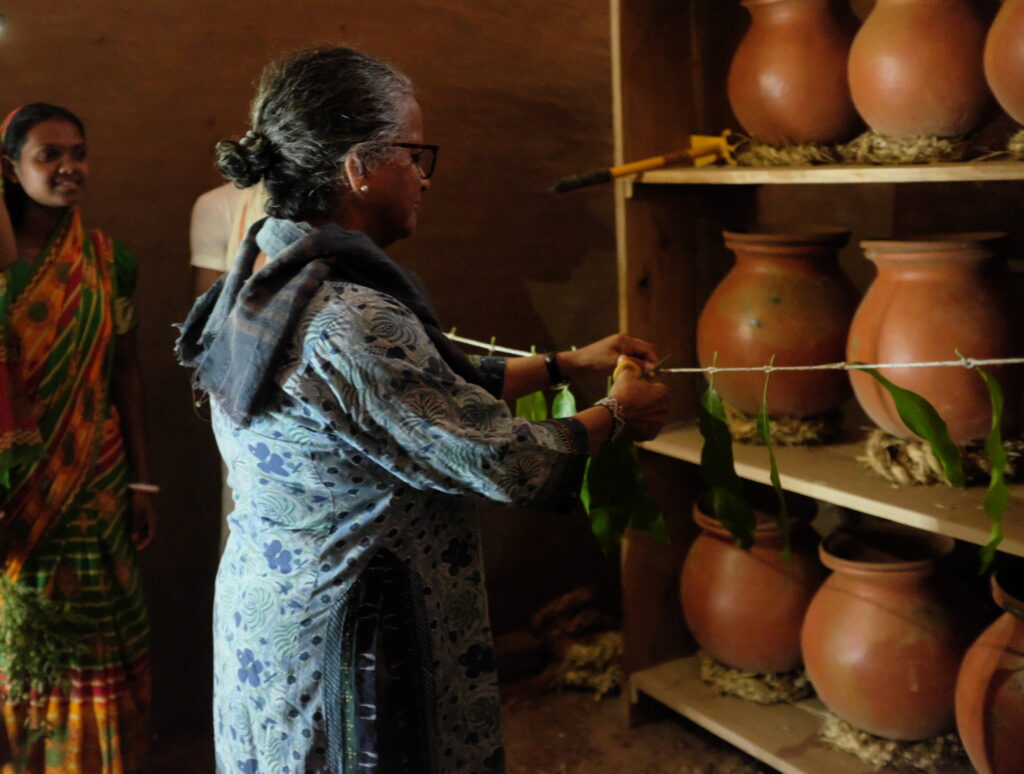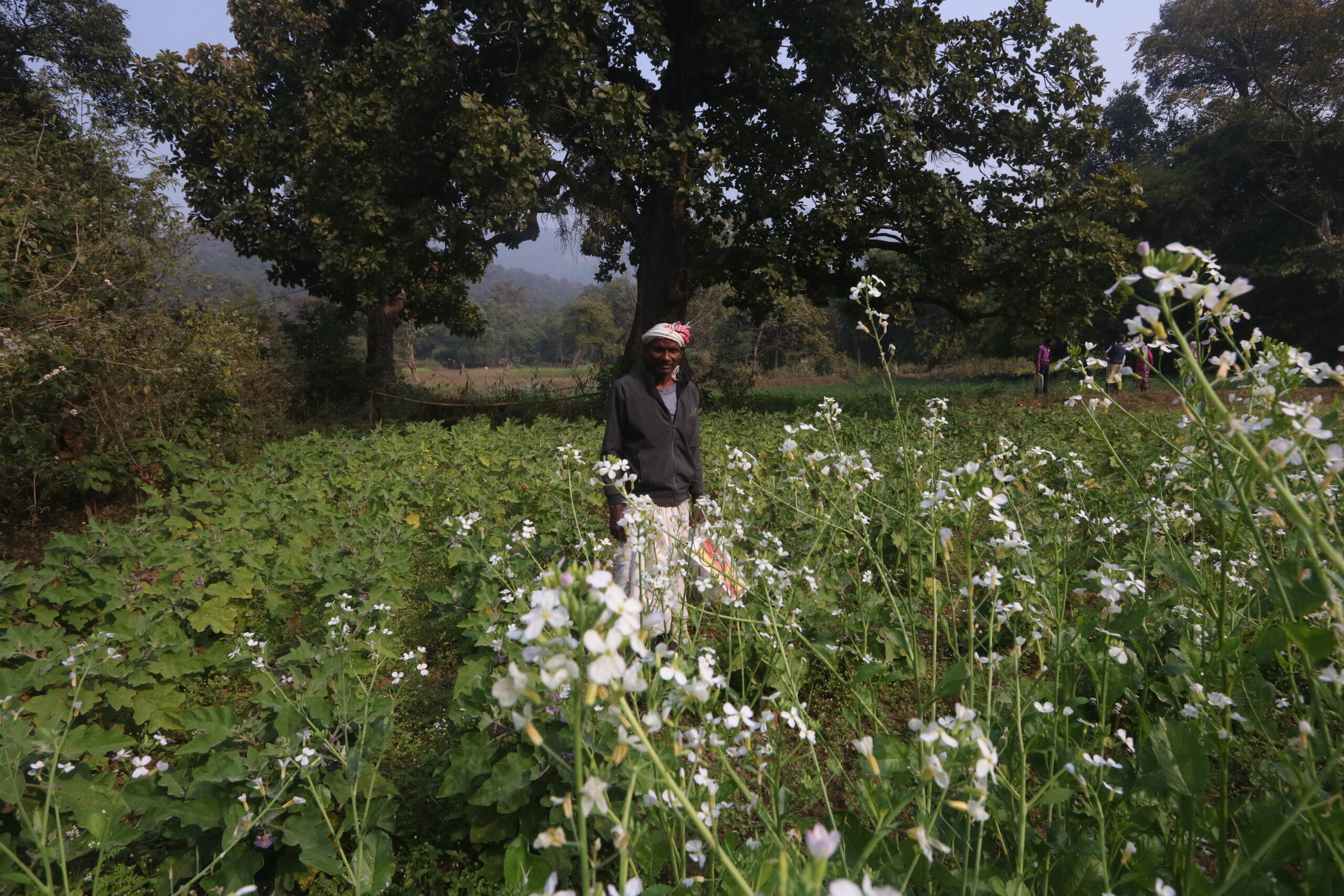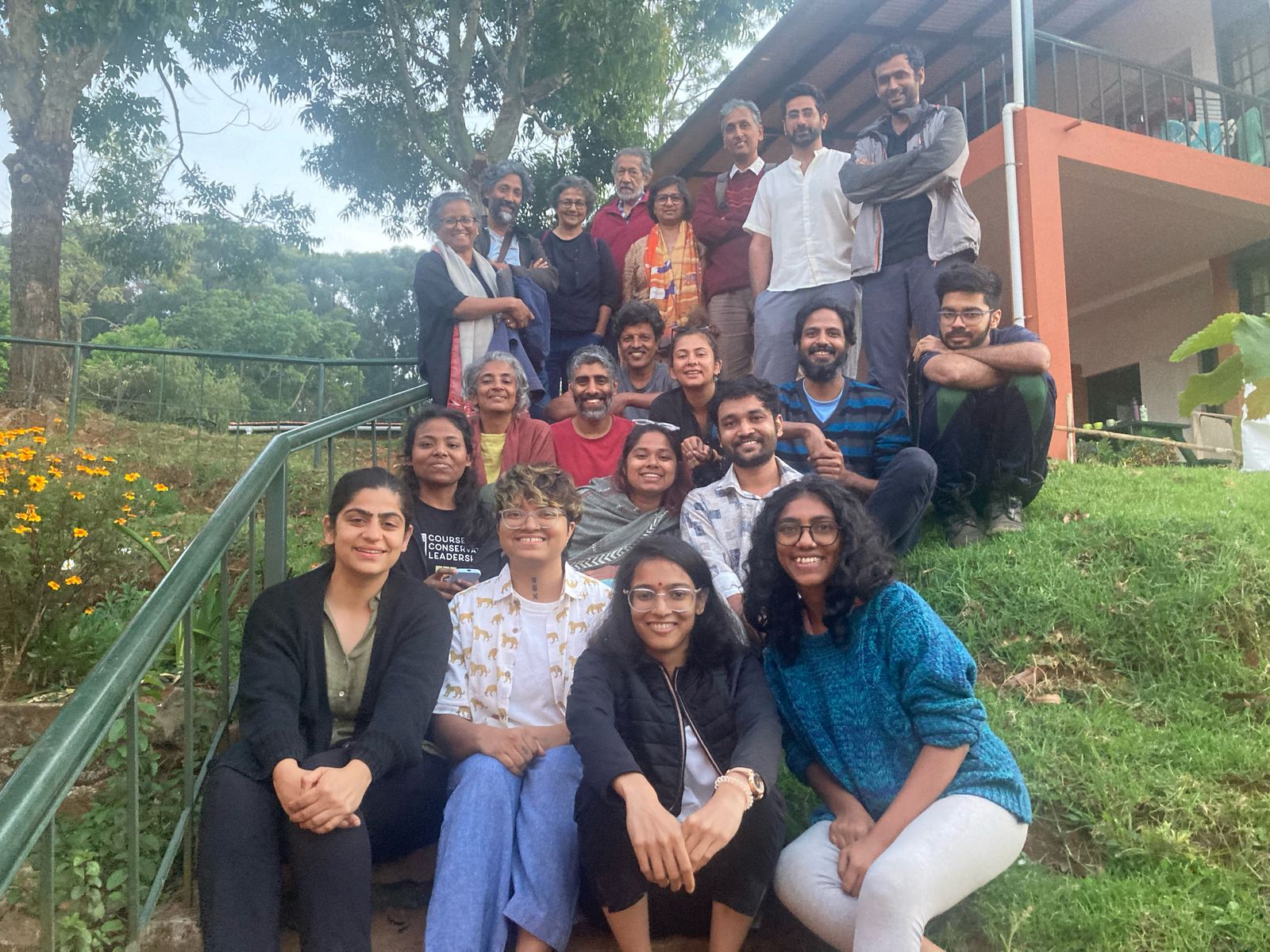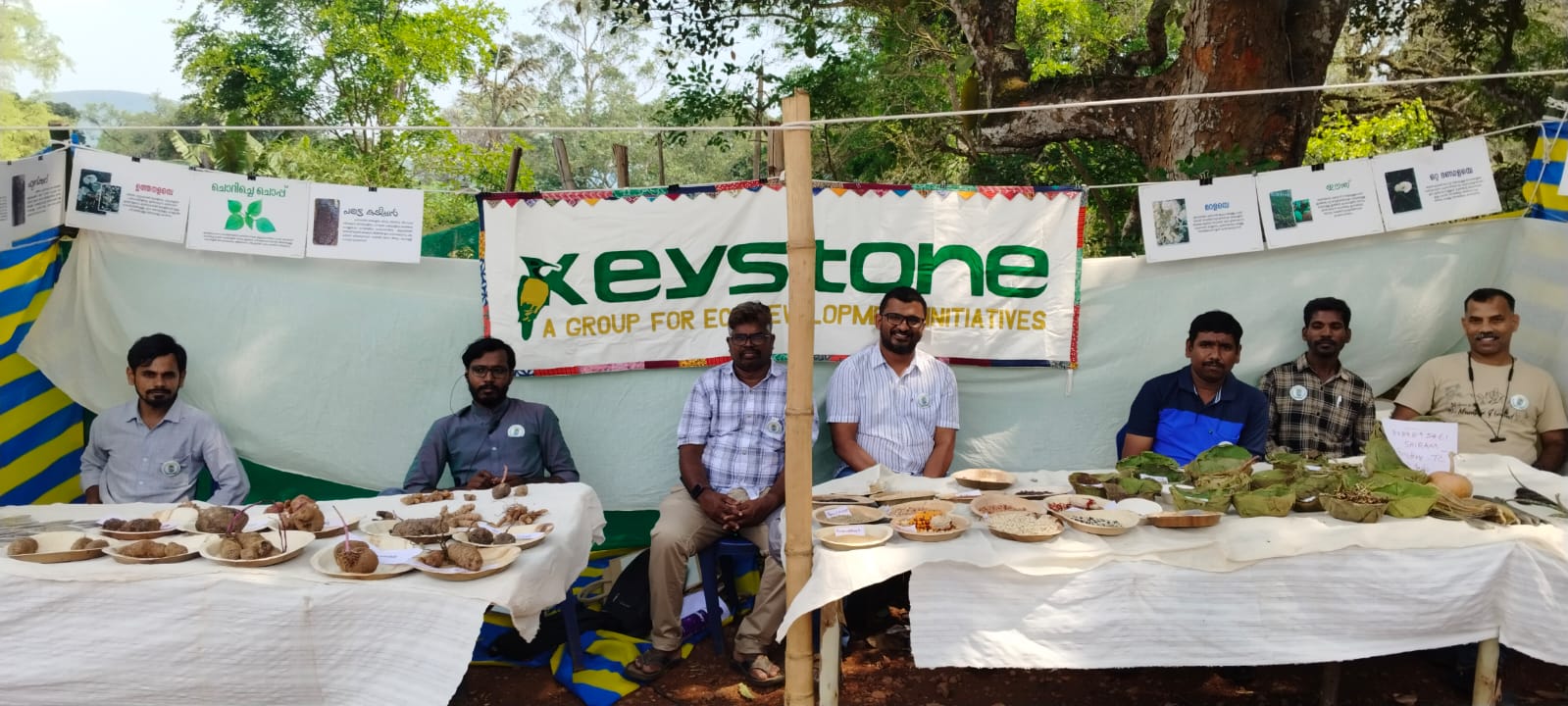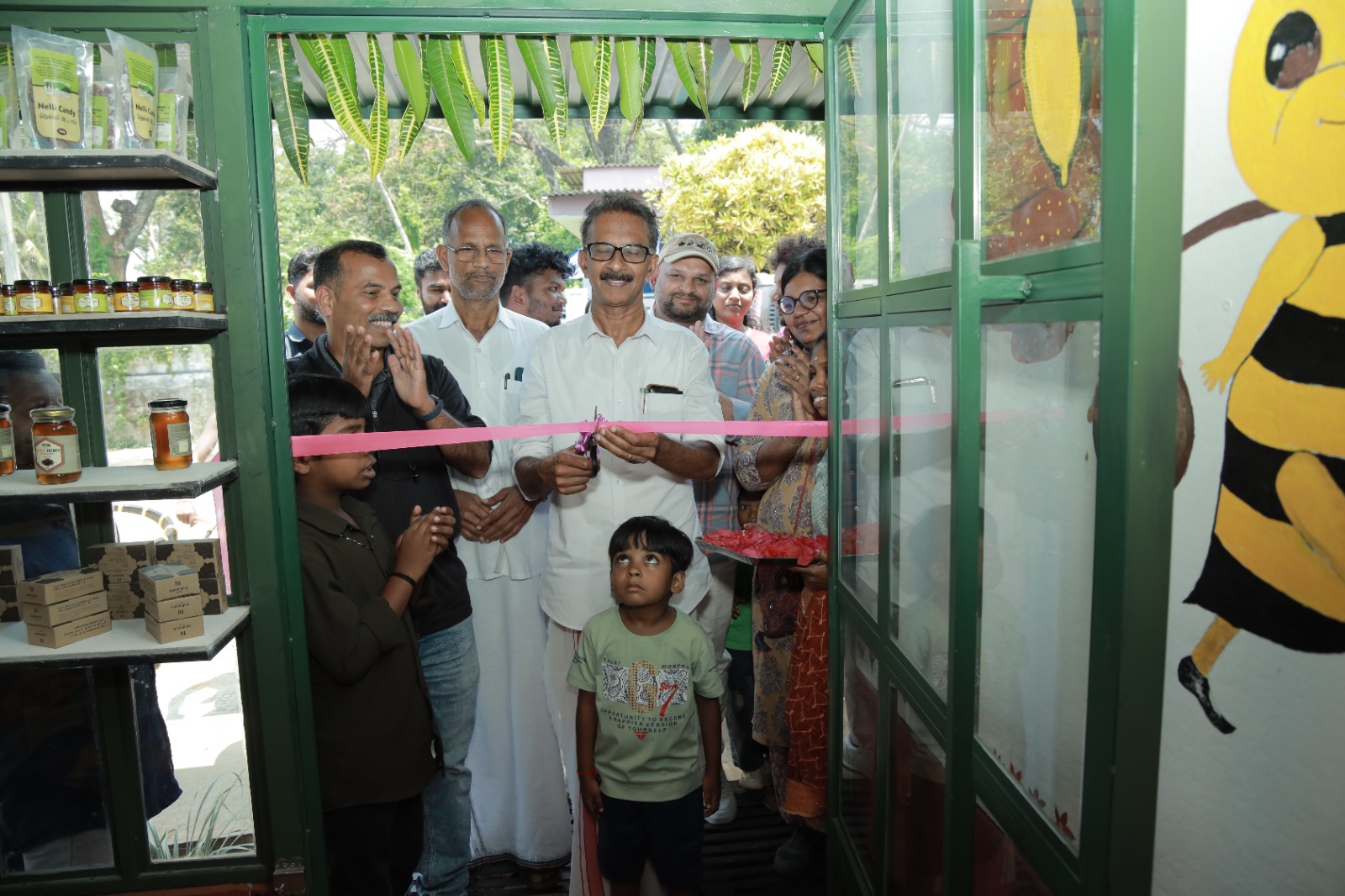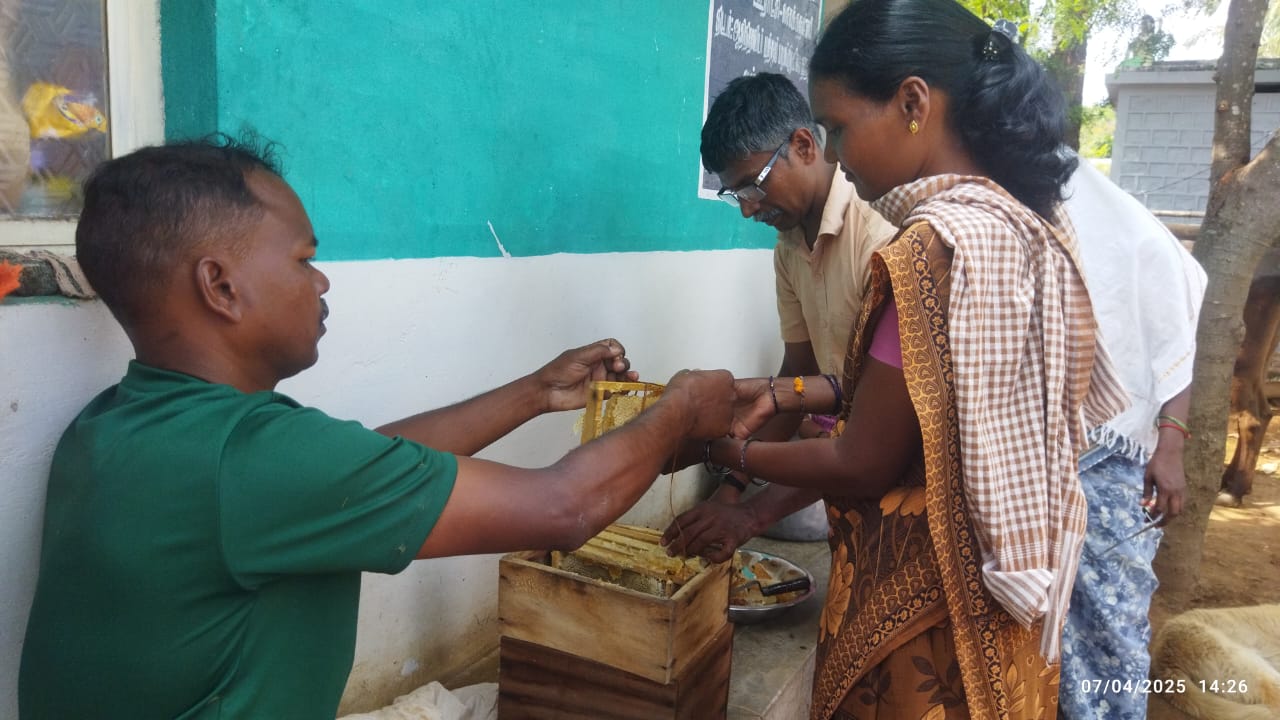By Rohan Mukerjee, Budheswar Mahato and Jagabandhu Sanda, Community Wellbeing
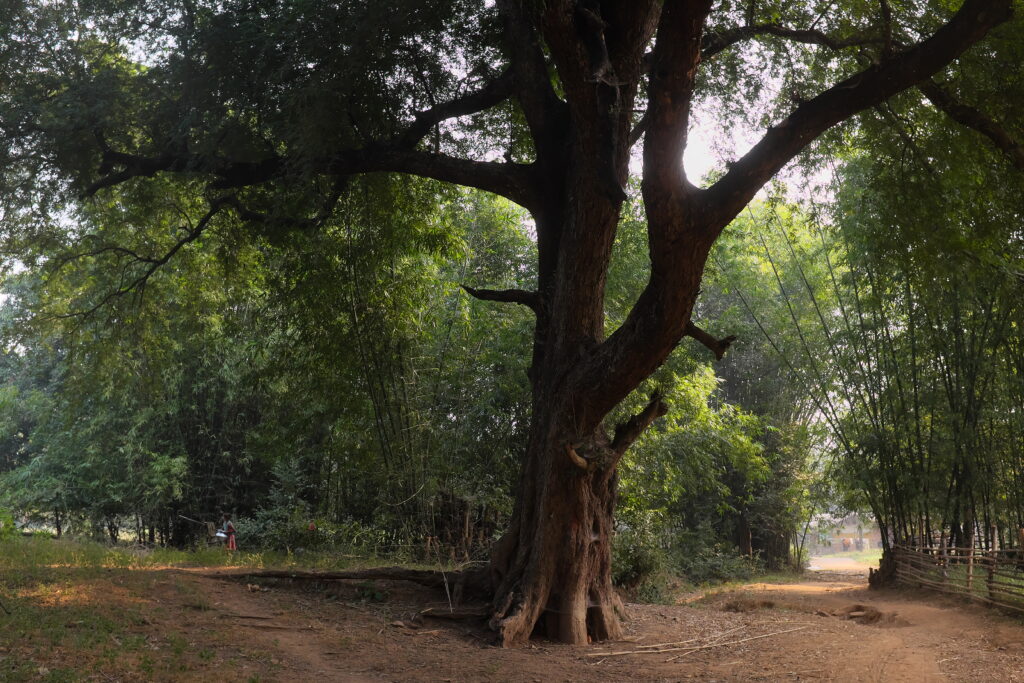
Located in the lush Sal forests of Chandil Block, Seraikela-Kharsawan District, Jharkhand is the Lapaibera village. Lapabeira comprises of 6 hamlets, home to Adivasi and OBC communities. Since 2023, we have been working in the main hamlet of Lapaibera, which comprises 25 households of the Santal and Lohara Adivasi communities. During my first visit to Lapaibera, accompanied by Community Resource Person Budheswar Mahato, a group of village elders shared that only 6 to 7 families were engaged in Agriculture, and only at a small scale.
Some of the main reasons for agriculture fields lying fallow were the lack of seeds and an issue with alcoholism in the hamlet. Jagabandhu Sanda (Consultant with Keystone’s Eastern India initiative) shared that most villagers sold all their seed for alcohol, often leaving no seeds for future sowing. As a result, they often couldn’t afford to buy seeds for sowing in subsequent seasons. Sale of firewood was one of the primary sources of livelihood, which posed a major challenge to the rich forests of Lapaibera. The hamlet also experienced considerable migration, with members of most households migrating for work both locally and to various parts of India, primarily to the Southern states.
Since late 2023, Budheswar Mahato has been working with the local community in Lapaibera to promote protection and conservation of their forests, address the issues with alcoholism and promote sustainable agriculture practices to meet both subsistence and livelihood needs. The youth of the village, with the support of the Mukhiya (Headman) Sukhlal Manjhi undertook various activities and initiatives to address the issues related to alcoholism and since then these issues have largely been brought under control. The villagers also came together to form a Van Surraksha Samiti (Forest Protection Committee). The Committee is actively monitoring and protecting Lapaibera’s forests. One of the steps they have taken is the banning of the sale of firewood, with firewood collection only allowed to meet household needs. These efforts are aimed at combating degradation and promoting natural regeneration of their forests.
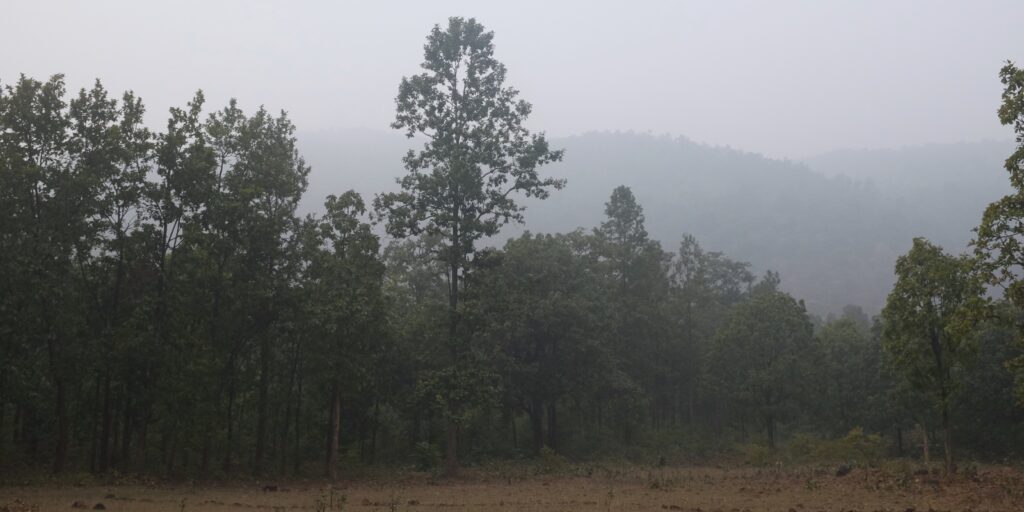
In order to provide an additional source of income, and also ensure availability of healthy and nutritious food for village households from their own land, Keystone Foundation has been promoting Agroecology approaches and natural farming through awareness programs and trainings. This has included trainings on preparation of natural inputs for farming and distribution of seeds of a variety of crops. 16 of Lapaibera’s 25 households came forward to actively embrace the sustainable agriculture initiative. In the Kharif season, seeds distributed included local paddy varieties like Sona Rupa, Maize, Sorghum; Pulses like Kurthi (Horsegram), Biri (Black Gram) and Moong (Green Gram); and a variety of vegetables like bottle gourd, pumpkin, bitter gourd, Sim (Dolichos bean), Jhinga (Ridge gourd). Small quantities of Aalti (Taro) and turmeric were also distributed to some farmers.

In the Rabi seasons, seeds distributed included Mustard, Radish, Channa, Cauliflower, Tomato, Brinjal and greens like Lutia saag, Palak and Dhania. Some farmers also cultivated crops like Sakarkand (Sweet Potato), potato and brinjal on their own. After meeting their own consumption needs, the families sold the excess produce in Hatia (weekly markets) in different locations like Lapaibera itself, Gutihuli, Matkomdih, Gariaberia, Khuchidih and Dulmi. If they had a lot of produce, then they would sell it in Gamaria market. The families generated around Rs. 15,000 to Rs. 20,000 each during the Kharif and Rs. 10,000 – 15,000 during the Rabi season.
With the summer season approaching, the farmers are keen to explore possible sources of irrigation that would enable them to continue their agriculture practices during the dry season. One of the possible sources of irrigation is the Dewandhara Nala, a stream bordering Lapaibera’s agricultural lands, and the villagers feel that the construction of a check dam here would meet their irrigation needs. Keystone Foundation, in consultation with the villagers of Lapaibera, is exploring the possibility of establishing a check dam here.
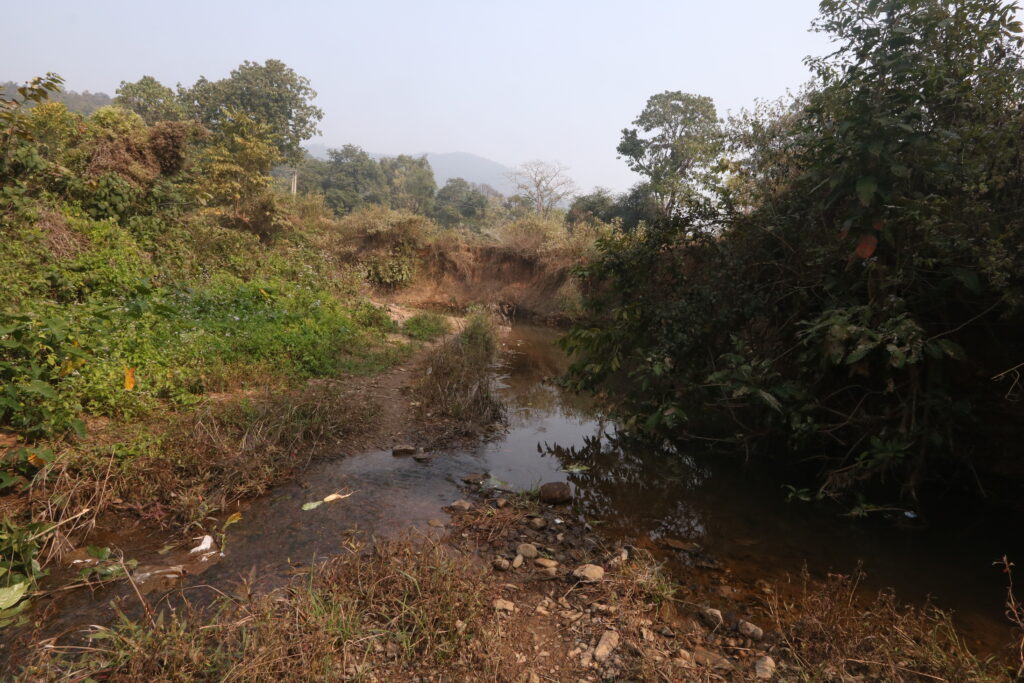
The farmers are in the process of forming a Kisan Samiti which will explore joint marketing of farmers produce and jointly plan and develop solutions to the different challenges they face. In order to ensure the future viability of the agricultural initiative the farmers of Lapaibera have come together with the support of Keystone Foundation to establish a Community Seed Bank with Seed Bank committee responsible for its management. The seed bank has been set up in the home of Ramchandra Manji who has proactively supported the sustainable agriculture initiative in Lapaibera and has attended Seed festivals and Krishi Melas in different parts of Eastern India. Currently the seed bank has the following seeds – Dhan / Rice (Sona Rupa), Sorghum, Maize, Kurthi / Horsegram, Moong / Green gram, Biri / Black lentils, Vegetables – Ridge gourd, okra, cowpea, bottle gourd and pumpkin. The seed bank will ensure that the farmers have control over their own seeds and don’t have to be at the mercy of traders to purchase seeds and it will also allow them to make seeds available to more farmers in their hamlets as well as neighbouring hamlets and villages.
Reviving agricultural practices in Lapaibera has not been without its challenges. Some of the youth shared that they have find it hard to make time to harvest their fields as a result of other work commitments which include working in factories in adjoining areas. Unpredictable markets especially for vegetables can be a challenge as was the case with Tomato which was selling for as low as Rs. 2 per kg in March resulting in some farmers leaving their harvest to rot in the fields. Farmer who cultivated tomato in the Kharif season got a good rate of around Rs. 50 per kg in October and November. But those who cultivated tomato in the Rabi season suffered due to excessively low rates. However, fortunately most farmers did not only rely solely on one crop and other crops they cultivated gave them good returns like Jhinga / Ridge gourd at Rs. 35-40 per kg, Barbatti / Cowpea at Rs. 25-30 per kg and Bhindi / Okra at Rs. 30-40 per kg.
